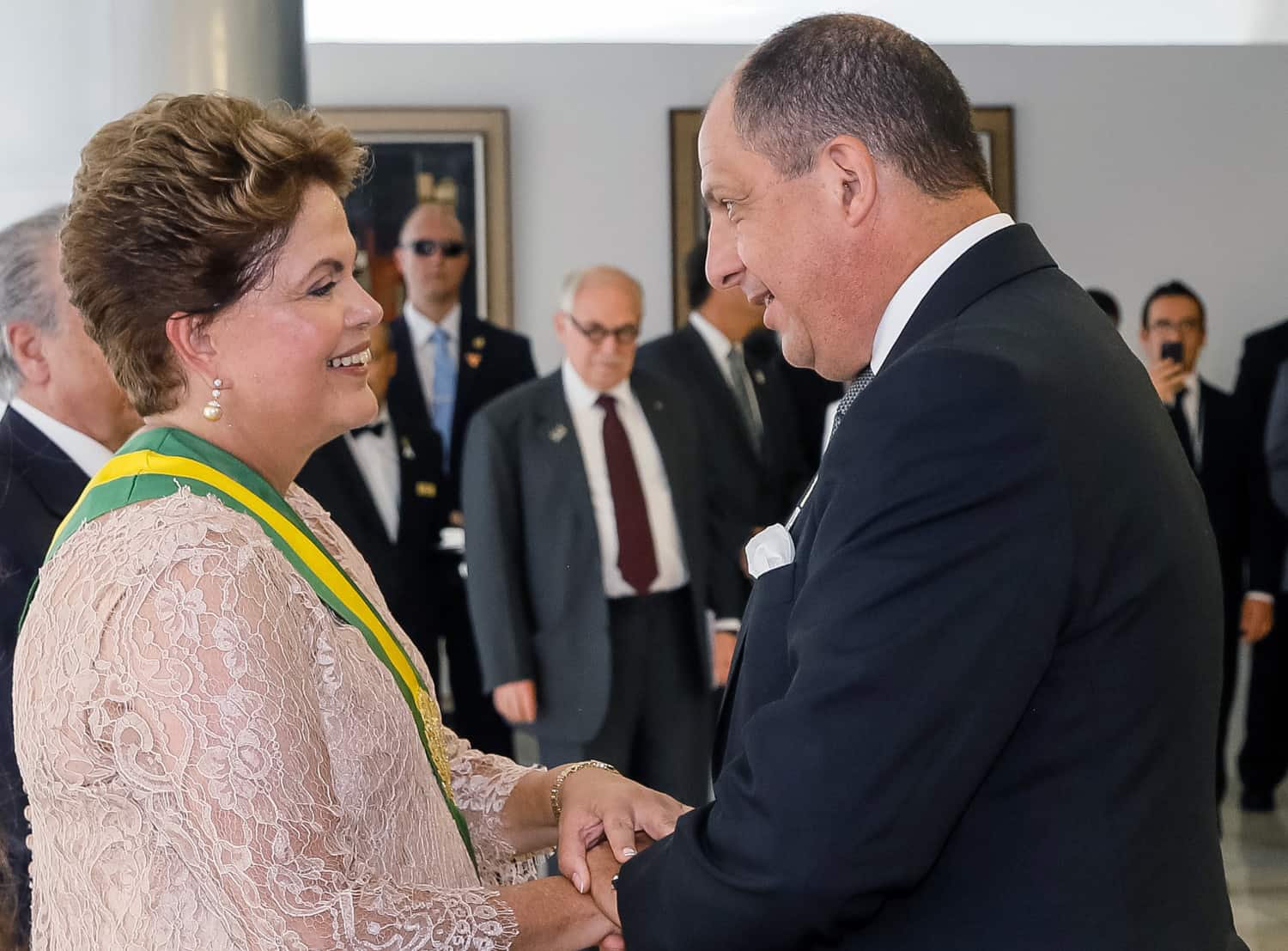BRASILIA – Brazilian President Dilma Rousseff kicked off a second term Thursday, vowing to tackle corruption and revamp the economy as her government reels from a series of setbacks.
Brazil’s economy, once booming, has barely grown during Rousseff’s time in office, and her administration is embroiled in a multimillion-dollar graft scandal at state-owned oil giant Petrobras. But the former guerrilla promised to face the scandal head on, vowing to punish anyone found guilty of illicit dealings.
“We are going to rigorously investigate everything that has happened,” the leftist Rousseff said, speaking at the ceremony attended by the U.S- and Chinese vice presidents as well as 13 heads of state, most from Latin America.
“We must investigate and punish, but without weakening Petrobras or diminishing its importance,” she added, drawing warm applause at the ceremony at Brazil’s Congress.
Rousseff won October’s hard-fought election thanks to voters reliant on the extensive social welfare programs put in place a decade ago by her Workers Party predecessor Luiz Inacio Lula da Silva. The Petrobras scandal and the ongoing police investigation, dubbed “Operation Car Wash,” erupted just a few months before the election. So far suspicion has fallen on 39 people, including former Petrobras directors and executives from construction firms, a network that allegedly laundered around $3.8 billion creamed off from inflated contracts to give kickbacks to mainly pro-government politicians. Petrobras is also facing legal action in the United States over investor losses emanating from the scandal that has seen the firm’s stock plunge, and hit its creditworthiness and ambitious investment plans.
The scandal, along with poor economic performance, sparked mass street demonstrations during Rousseff’s first term.
Rousseff has also come under fire for Brazil’s sluggish economic growth, and though economists do not expect a major boost in 2015, she said reviving the economy was a top priority.
“Brazil must return to the path of growth,” she stressed, after arriving at the ceremony in an open-top Rolls Royce. “We’ll do this with the least sacrifice possible for the population, especially the most needy.”
Growth, forecast to come in barely above zero in 2014, has slumped badly compared with 2010’s heady heights of 7.5 percent under Lula. The world’s seventh-biggest economy boomed for a time under Silva, before suffering from a decline in Chinese-led demand for commodities just as Rousseff took over. For her second term, Rousseff has appointed a new minister tasked with breathing new life into the economy: pro-market economist Joaquim Levy, who has already drawn up plans to make public purse savings.
Experts agree the Petrobras scandal, combined with the country’s financial woes, have created an uphill battle for Rousseff, the country’s first female leader.
“The Petrobras scandal is part of the problem of trying to restore confidence in Brazil,” analyst David Fleischer of Brasilia University told AFP.






